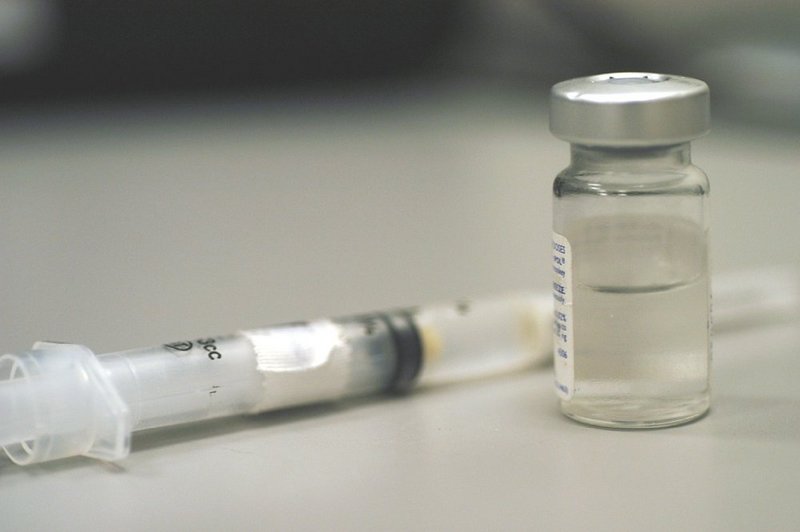Medical experts on Thursday said that immunisation and continuous sensitisation of members of the public were key to achieving sustainable polio-free Nigeria.
They told the News Agency of Nigeria (NAN) in Lagos that the federal and state governments needed to adopt to the fullest, the eradication of polio 2013-2018 end game strategy.
The World Health Organisation (WHO) had on Sept. 25, 2015 announced that polio was no longer endemic in Nigeria.
This is the first time Nigeria has interrupted transmission of wild polio virus, bringing the country and the African region closer than ever, to being certified polio-free.
A medical researcher, Dr Bamidele Iwalokun, told NAN that the mitigation phase was supposed to have been completed because 2015 was set as the deadline.
“This is the phase where all immunisation providers are expected to administer Inactivated Polio Vaccine (IPV) to children intramuscularly (as against Oral Polio Vaccine (OPV) along with the OPV vaccine.
“This should have been done within the framework that sought for the universal coverage of polio vaccine and other low coverage vaccines.
“More awareness and demand creation programmes on bivalent Oral Polio Vaccine (bOPV), since this is the game changer.
“bOPV is a two-antigen vaccine. It has only type 1 and 3 polio virus antigens. Immunisation with bOPV will not only prevent indirect immunisation with type 2 polio virus.
“It will also enable a better acquisition of immunity against the most virulent type 1 strain and also the type 3 strains.
“The procurement and cold chain framework for bOPV is supposed to be functional, if not fully functional,’’ Iwalokun, Head of Immunology and Vaccinology Research Department, Nigeria Institute of Medical Research (NIMR), Yaba said.
“To eradicate polio from Nigeria, we need to eliminate the risk of type 2 polio infections and related paralysis in Nigerian children through the use of trivalent Oral Polio Vaccine (tOPV).
“The federal and state ministries of health should not be left alone with this task. All the international donor partners and non-governmental organisations should also play their roles.
“We should also be mindful of the fact that bOPV has not come to stay. It is expected to be removed from our immunisation programme by 2018/2019 if the end game strategy 2013 -2018 is properly implemented.’’
Also, a family physician, Dr Oluwajimi Shodipo, said that there was need for all tiers of government and the communities to collaborate to sustain the country’s polio-free status.
Shodipo, who works at the Lagos State University Teaching Hospital (LASUTH), Ikeja, said: “The problem we have before was that there were pockets of areas where people still resisted polio vaccine.
“This is due to different rumours and misconceptions that the vaccine has dangerous health effects.
“We should not lose steam; we need everybody — the community leaders, religious leaders, to work together, because they play big roles, especially at the community level.
“We also need the governments to ensure that health centres have polio vaccines, the cold chain is maintained and sustained for the national immunisation days,’’ he said.
The physician urged the governments to continue with the National Immunisation Plus Days (NIPD) programme and ensure that vaccines were readily available as measures to stem the disease.
He said: “Normally, we have regular vaccines and immunisation programmes where mothers take their children to and get them vaccinated depending on their ages.
“But again, the governments came with the NIPD where on certain days; the workers go round to give booster doses to children that may have missed out.
“We need that to intensify and we need the government to continue with it; we also need to make sure that at all times we have reservoirs and stocks that will last for a long time’’.
Shodipo said that the media also had a big role to play in educating and re-educating the people about polio.
According to him, some people still do not understand what polio is and the effect it has on a child.
“We need to make people to understand and this can be done through the media,’’ he said.
Also, the President, Association of Resident Doctors, LASUTH, Dr Olugbenga Dade-Matthews, urged parents to present their children at the health centres for immunisation.
Dade-Matthews said: “The government has ensured that the national programme on immunisation is entrenched in our healthcare policy and practices.
“And the national immunisation days have gone a long way to help to curb this vaccine preventable diseases by ensuring that children of age receive the vaccine as and when due.
“It is important that parents present their children for immunisation which is important in preventing all vaccine preventable diseases, especially polio’’.
Another family physician, Dr Adeyeye Arigbabuwo, said that there was still need to sensitise people at the grassroots to stem the resurgence of polio.
Arigbabuwo, who is the Lagos State Chairman, Association of General and Private Medical Practitioners of Nigeria, said that people should be sensitised about the new roll out of polio vaccine,’’ he said. (NAN)



Leave a Reply